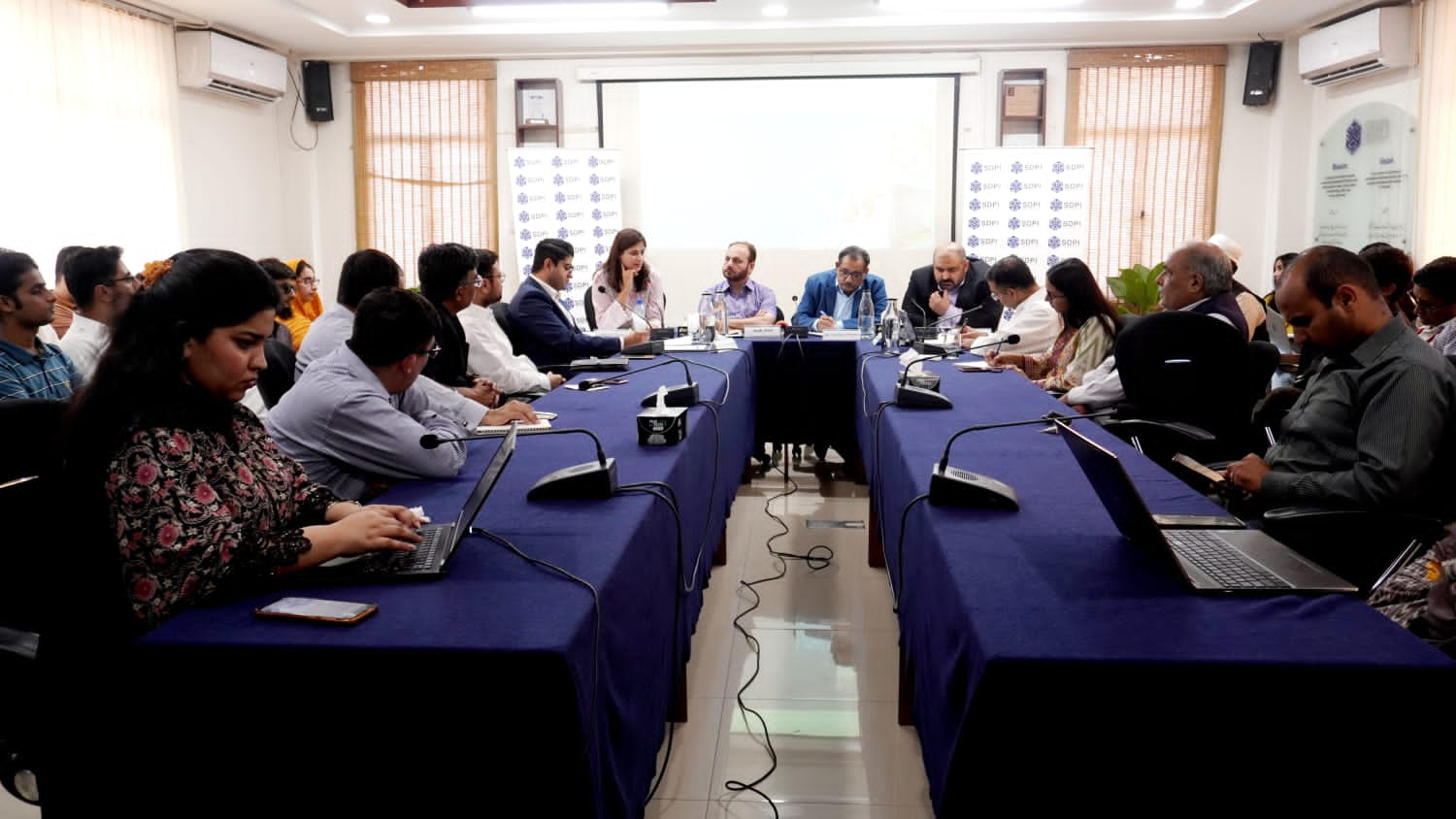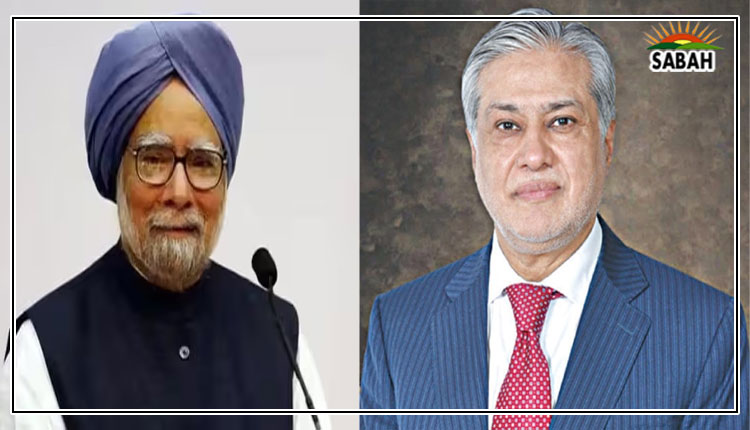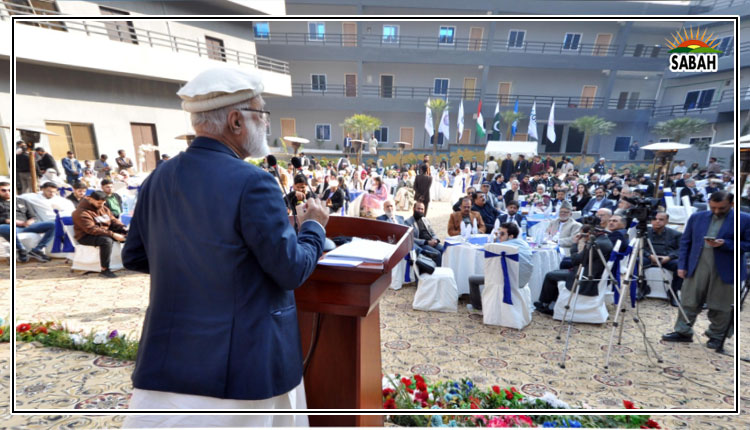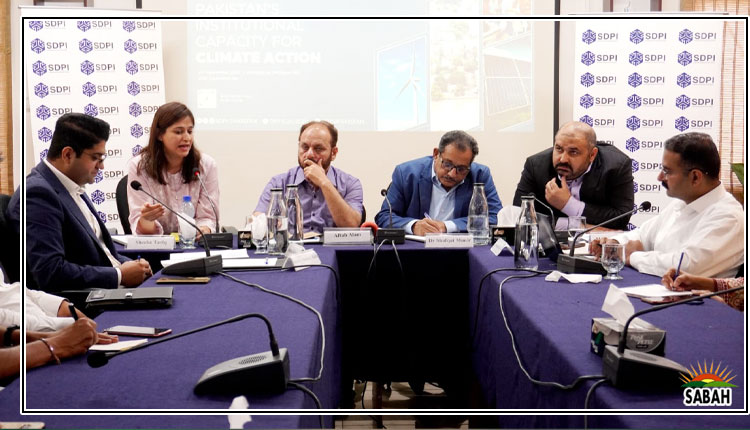Inclusive, participatory climate policy development & robust coordination stressed for effective climate action
ISLAMABAD, Sep 21 (SABAH): Increasing resilience to climate crisis possible by amplifying climate action through inclusive and participatory climate policy development and robust coordination among stakeholders for effective implementation. This was the crux of a seminar titled “Analyzing Pakistan’s Institutional Capacity of Pakistan for Climate Action” jointly organized by Sustainable Development Policy Institute, Oxfam and partners on Thursday.

Dr. Shafqat Munir Ahmed, Deputy Executive Director, SDPI in his opening remarks stressed that sustainability in consumption and production is crucial to realize worthwhile success in climate action and is crucial in mitigating carbon emissions to deliver on the NDCs. He further stressed on technological innovation and digitalization of climate and disaster related data, accessible to common public to empower communities to make timely, data-driven and responses decisions.
Aftab Alam, stressed on broadening the perspective on institutional capacity and adopting a cross-sectional approach through robust coordination between various ministries and stakeholders to bridge the gap in climate finance. Improving coordination for climate policies and response prevents duplication of efforts, expands the response perimeter, and achieving the set target actions. Highlighting the inefficiencies hindering international climate finance flow, he stressed on ensuring robust implementation of climate policies and actions, gender responsiveness and inclusivity in policies. Strengthening monitoring and evaluation of climate action projects is critical to improve delivery on the commitments.
Sheeba Tariq, Lecturer, Department of Development Studies, NUST highlighted that despite policies formulation and implementation, Pakistan ranks as 27th least prepared countries globally according to the Notre Dame Global Adaptation Initiative. She urged for decentralization of climate and disaster risk resilience responsibilities and legislations to local governments and community level. These measures can enable identification of most vulnerable communities and regions, expand the reach of the climate action efforts to grassroot level, she added. Ensuring that policy formulation process is gender responsive, inclusive, and participatory following a bottom-up approach is crucial to strengthen climate preparedness. She further emphasized the need for insurance, compensation, and rehabilitation assistance for households most affected by climate disasters to prevent exacerbation in poverty due to climate disasters and restore the lost livelihoods post climate disasters.
Mujahid Afzal, Deputy Manager, NDRMF highlighted the need to enhance the capacity of public and private institutions to address the root causes of climate change and develop projects proposing tangible outcomes to catalyze the flow of climate finance to Pakistan. He informed that a new policy for project-based accreditation is being introduced by Global Climate Fund to expedite finance flow to support timely implementation for climate action. He apprised the audience that NDRMF has delivered its climate projects by enhancing the inhouse capacity, without hiring any consultants.
Muhammad Awais Umar, Research Associate, SDPI, in his technical presentation highlighted that despite the National Climate Change Policy being passed in 2012, Only Sindh and Kyber Pakhtunkhwa have approved their climate change policies. He further remarked that government institutions responsible for implementing climate action failed to effectively implement the regulations and environmental standards, reducing resilience. Pakistan has been facing challenges in securing sufficient financial support from the international community. The transition to 60% renewable energy and 30% electric vehicles targets mentioned in NDCs, require around US $101 billion while for climate change adaptation, Pakistan requires $7-14 Billion per annum. This gap in climate finance requirements leave much to be desired when it comes to the effective implementation of policies at the grassroots level, he said.












